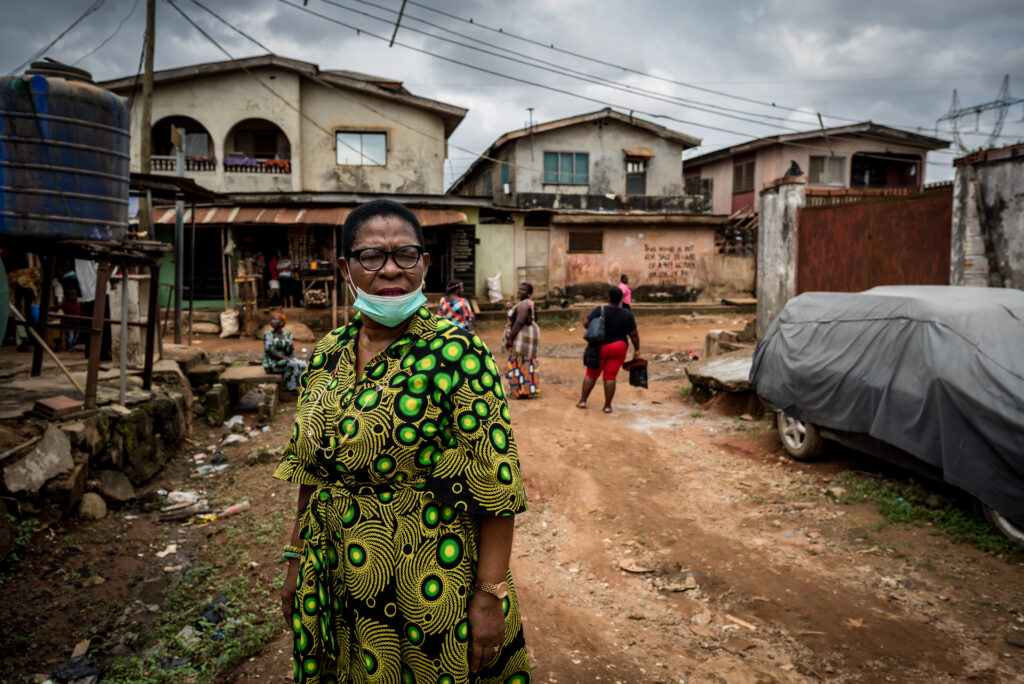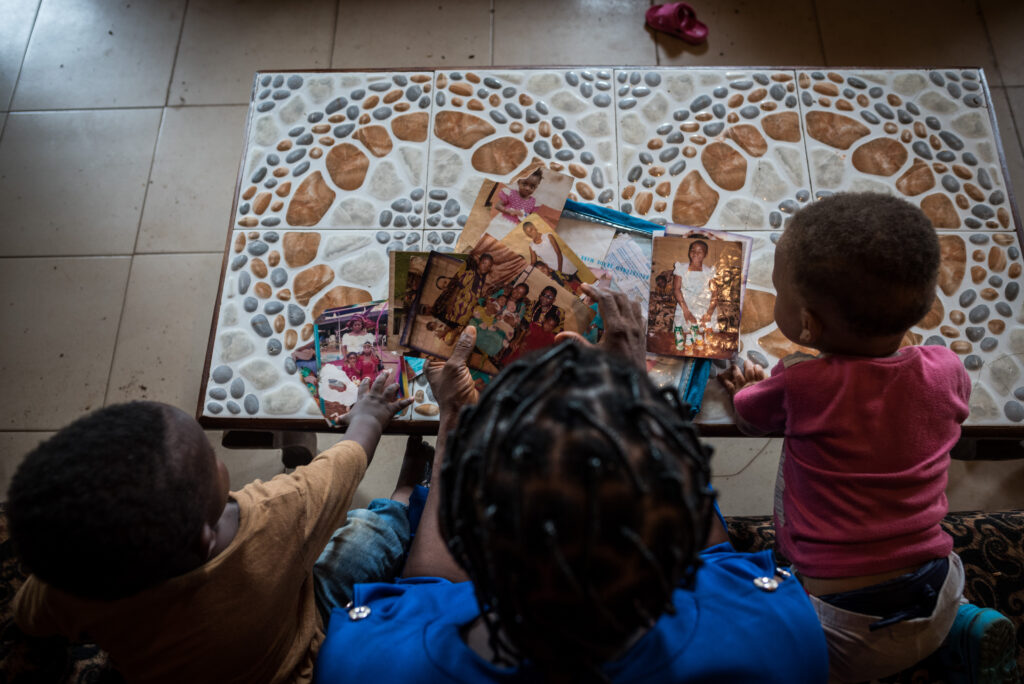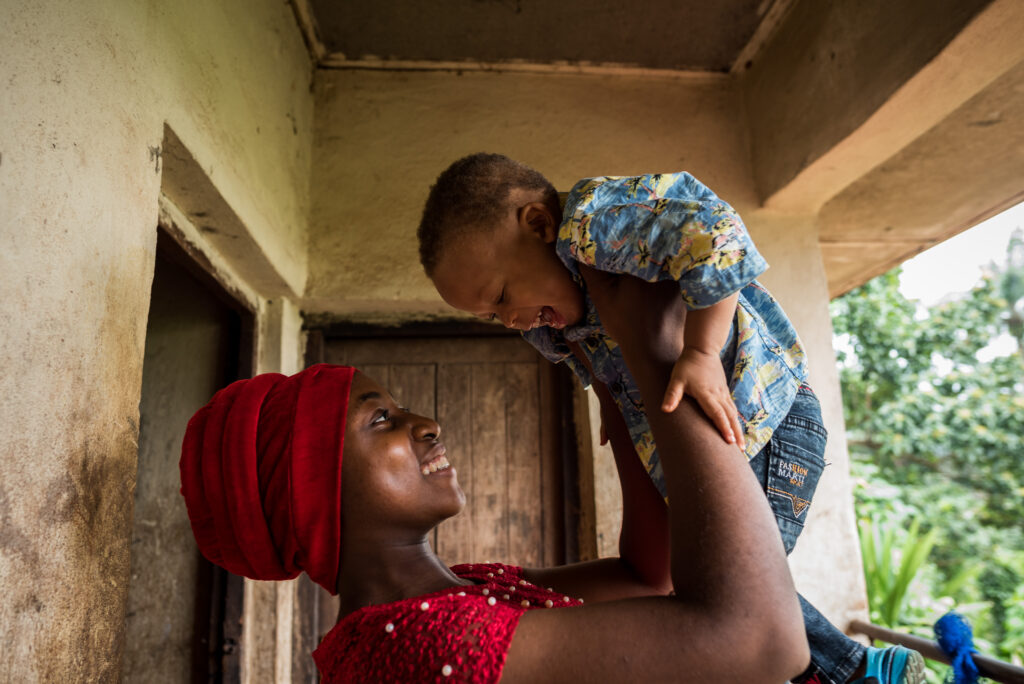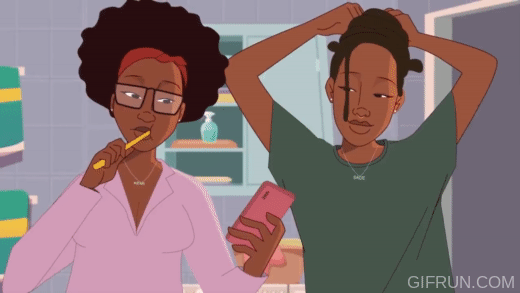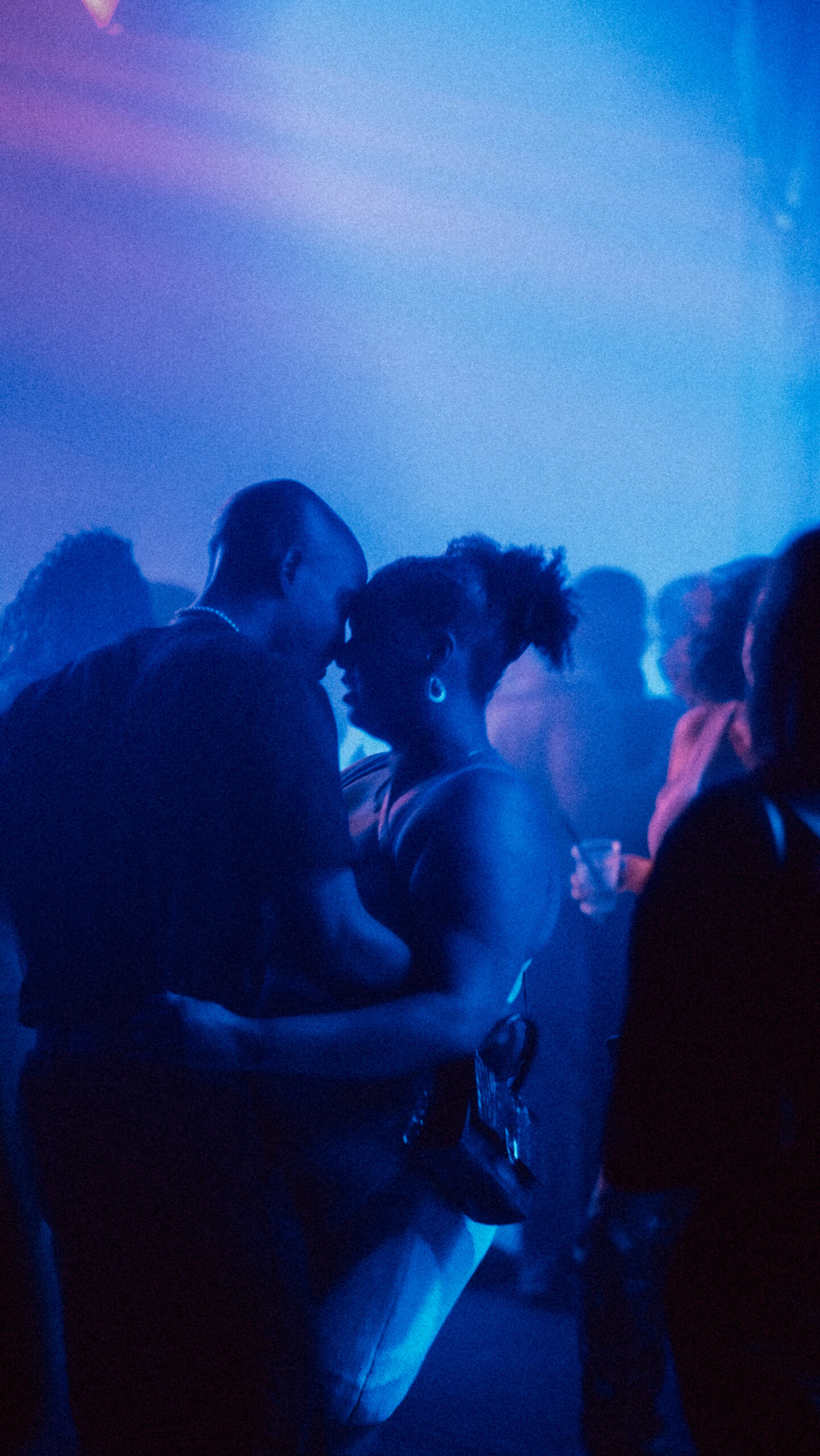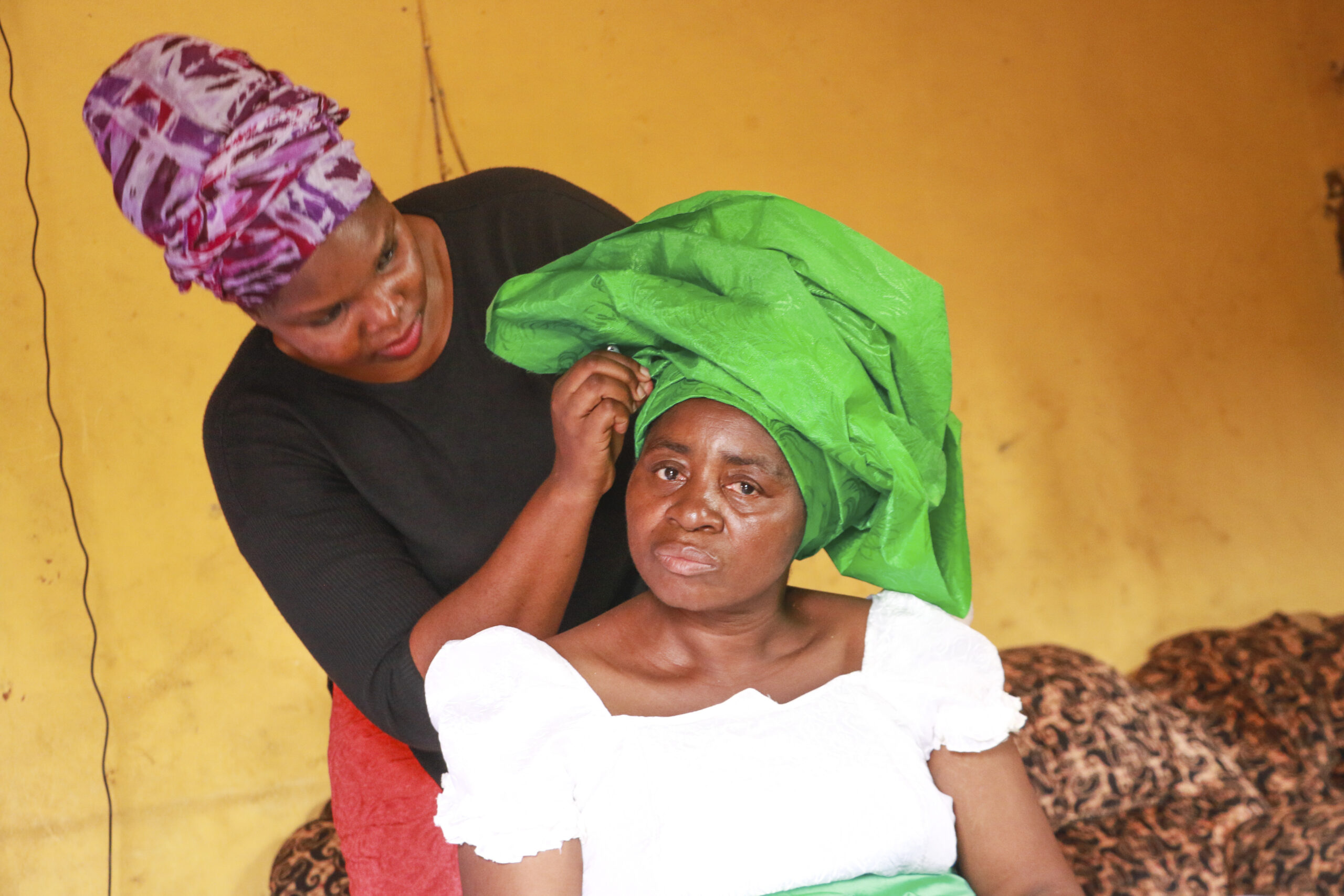
Lola Ayanda/ActionAid, behind the scenes at a photoshoot with Grace and Etinosa Yvonne
For too long, Nigerian women’s stories were told by others. Through photography, we are telling our own
As Nigeria celebrates Independence Day, photographer Etinosa Yvonne writes on the importance of empathetic representation.
Etinosa Yvonne
01 Oct 2021
Content warning: contains mention of rape and sexual assault.
When I started photographing Bose Ironsi, you could really see the fire in her eyes.
I took Bose’s photos just after she had finished a long day at work for the organisation she founded, Women’s Rights and Health Project, which provides counselling and legal information for survivors of gender-based violence across Lagos.
On this particular day, I went with Bose, 61, to visit the house of a mother who had endured heart-breaking violence, including the rape and murder of her daughter. My photos captured the mixture of emotions that Bose was feeling after the visit – anger, empathy and sadness. But above all, a determination to make change. Her organisation has so far helped over 500 women.
Bose is on the frontline fighting for a safer world for women and girls, and she is passionate about ensuring survivors get justice. To shadow her for the day, and make images of her in intimate moments was incredibly inspiring.
Before taking Bose’s photos, it was important for me to spend time with her and learn about her story. As a photographer, it is my job to capture the essence of who someone really is. I can only do this when the work is a true collaboration between me and the person I photograph.
That is how it was between myself and Grace too. Every time I look at Grace’s portrait, I just feel happy. When I first went to her house, I got to tie her hair, which is a big deal for me as a Nigerian. As we sat down, I learned more about her story. If there is no son when a woman’s partner dies in some communities in eastern Nigeria, where Grace is from, her property goes to the husband’s family. Grace told me that she was not highly educated and so people thought it was easier to take advantage of her.
When her husband died in 2009, she said her brothers-in-law harassed her to give up her family home and assets. But she fought back. She sought legal advice through an ActionAid partner, and drew up an agreement to divide the assets. Now women in the community come to her advice. So when I was taking Grace’s picture, I wanted to make her look beautiful, to take a photo that would make people see past the frame and the colours, and really see her.
(R) Grace’s eldest daughter, playing with her younger brother at home.
On several occasions, I have worked with foreign journalists who have come to Nigeria on a reporting trip. Some of them come with a preconceived idea of what their story would be before they’ve even met the people they’re interviewing and photographing.
So often, we have seen photos of African women where their story has been told for them. As a result, they are often misrepresented, and the complexity and the details of their lives are missed. We have seen stories told by those who have little understanding of the cultural context and portray people they do not know well. If you constantly repeat a negative story from a certain country, people from that place start to be seen as helpless, and as victims.
But if you are from that place, you know that in every community and household, there are hundreds of different, colourful stories waiting to be told.
This is why it is so important to me that I and other Nigerian women tell our own stories through our own camera lens. About four years ago, I started teaching myself how to take pictures. I felt photography was powerful and I knew I could use it to raise awareness and make change.
Despite being a Nigerian, I have also been influenced by the single story. I used to think of people who lived in rural parts of the country as living in poverty. However, the more I started to ask people questions and have conversations, I found that their approach and focus in life was just different from mine. They are wealthy – but they don’t measure wealth in the same way as us. They have land and cattle, and these are assets that they can hand down to their families. They don’t measure wealth by cars and houses.
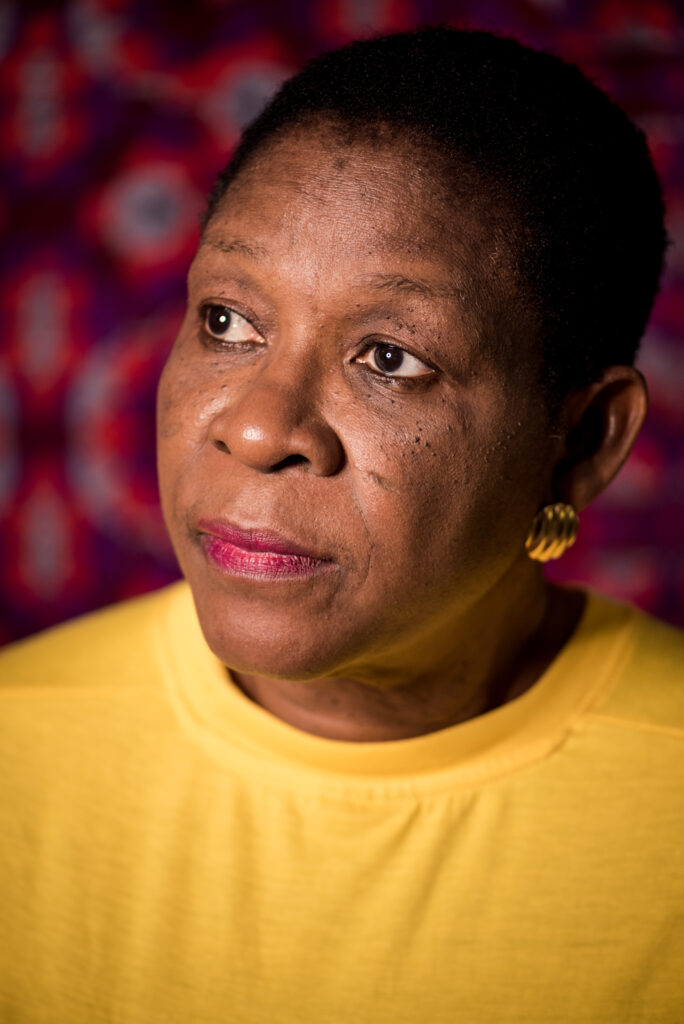
Now, what guides my work is empathy. In my previous jobs, I worked with all types of people, some who were just trying to survive. This made me realise that while everyone is unique – everyone is also equal. Just because people are in certain situations or are going through certain challenges, it doesn’t mean we should take advantage of them. I have taken this into my photography career, making sure the people I am photographing have dignity, however challenging their situation. I question how I would like to be seen and I try to put myself in their shoes.
When I became part of ActionAid’s Women by Women campaign, I knew this was another chance to document the beautiful, creative and interesting parts of Nigerian women’s lives – and not just their challenges. The women I photograph should feel empowered and valued.
The campaign shows that there are more women worldwide that are playing a leading role in representing stories from their country in an accurate, dignified and hopeful way. I hope that we see more women tell stories from their countries, so that we continue to disrupt the single-story narrative.
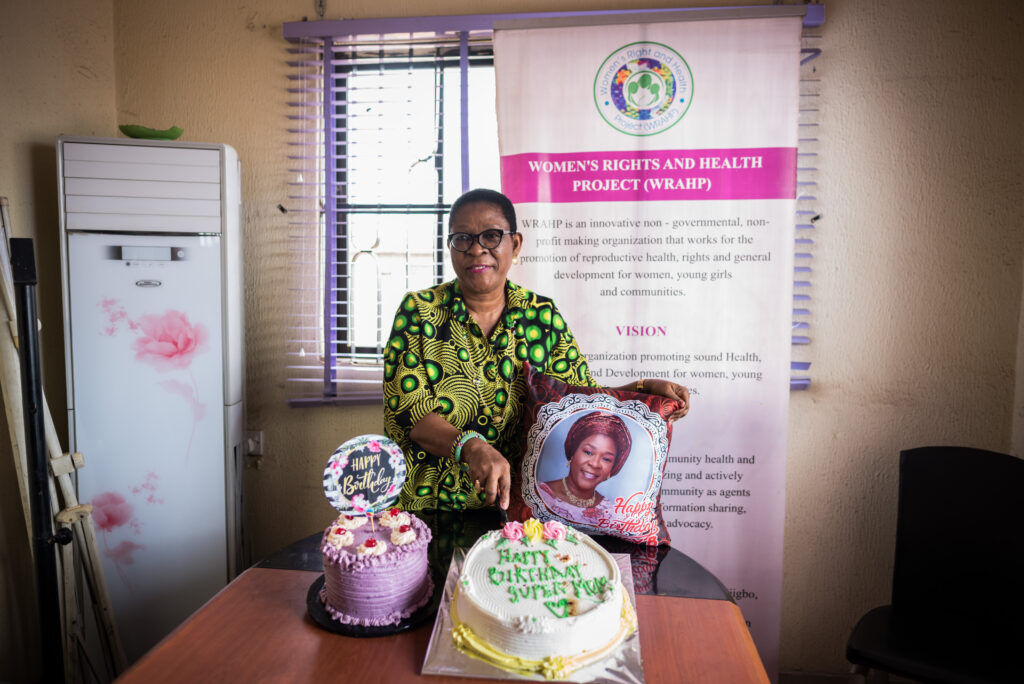
This issue of representation is particularly important at a time when Nigeria is going through many upheavals. We need to ensure these challenges are represented correctly and we need to show the ‘human’ side to the headline the world sees.
Every year on 1 October, Nigeria commemorates Independence Day. Last year, the day was marked by the #EndSARS protests. I remember the day the protests started very well. It was one of the first times in my life that I witnessed a new generation of young activists in Nigeria – in particular, young revolutionary women coming to the foreground.
When it first kicked off, I grabbed my camera and went straight down. I knew it was something special. These protests brought so many of the issues I’ve explored through my career, of underrepresented people and social injustices, to an international audience.
The world looks different through a female lens, and I hope that I inspire more women across Nigeria to pick up their camera.

